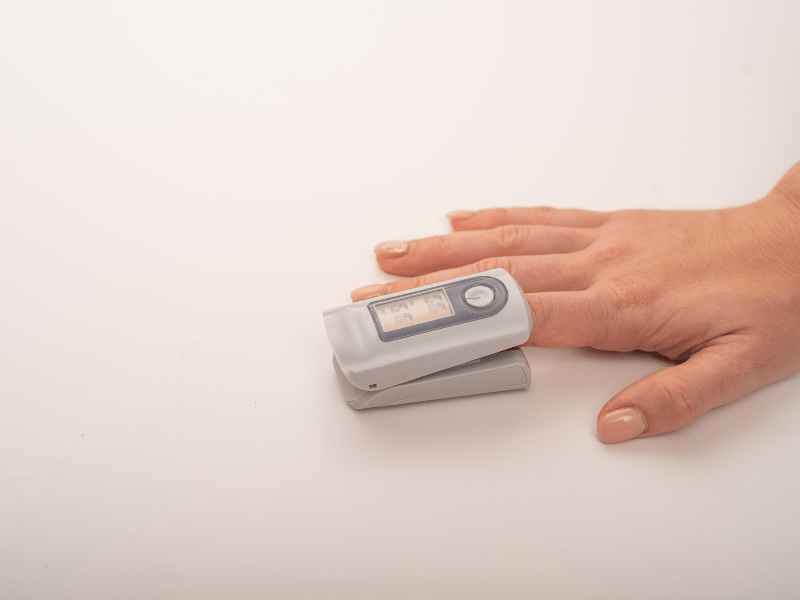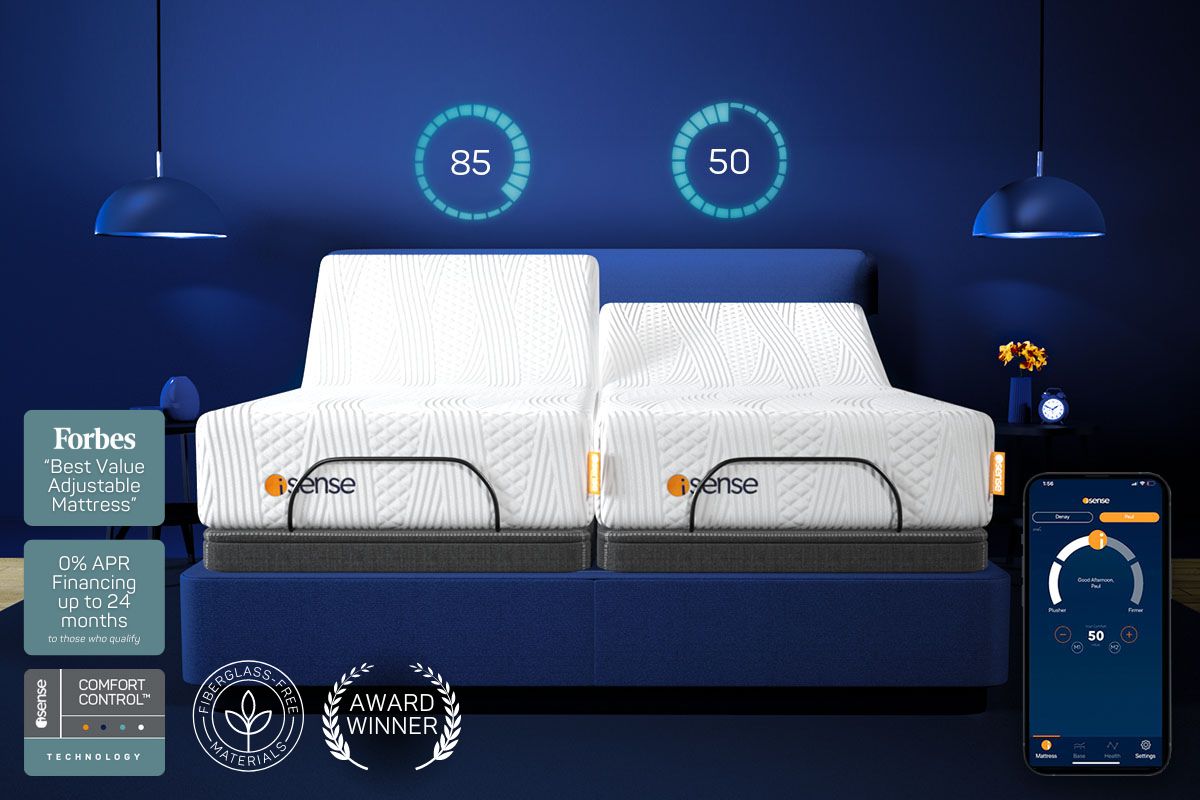Introduction
What is REM sleep and how much do you need? Are you baffled by the mysteries of sleep stages, but especially curious about REM sleep and just how much is enough? You may be surprised to learn that Rapid Eye Movement (REM) sleep makes up approximately 25% of your total slumber time.
Read on, as this iSense article will unravel the intricacies of REM sleep, its significance in our overall health, and provide insights into the recommended duration for optimal well-being.
Keep scrolling—a good night's rest starts with understanding what happens when your eyes close.
Understanding REM Sleep and Its Importance
Rapid Eye Movement (REM) sleep is a crucial part to your nightly rest cycle. Named after the distinct eye movement observed during this phase, REM sleep is characterized by relaxed muscles and increased brain activity. Despite closed eyelids and darkness, your eyes dance around rapidly yet transmit no visual data. During this stage, you will experience dreaming more than in any other Non-REM (NREM) stages.
The significance of REM sleep extends beyond its association with vivid dreams. It constitutes approximately 25% of an adult's total sleep time contributing heavily to overall sleep quality.
This stage embodies the last segment before the entire cycle starts afresh allowing for continued renewal throughout each night's rest; akin to hitting a reset button on your brain every night.
This peculiar state where muscles are at ease while mind races contrasts starkly from deep or light sleep stages. Your cognitive functions such as memory consolidation and learning new skills greatly depend on this vital phase called REM Sleep.
It is fascinating that our younger counterparts, babies and children, tend to bask in extended durations of REM compared with adults. This suggests its importance in early developmental years, but also signifies how essential it remains throughout life despite diminishing time spent in REM.
Sleep health experts persistently emphasize adequate amounts of restful slumber given its role in repairing and restoring the body. Naturally, the importance of understanding each component becomes incumbent upon us all if we strive towards optimal well-being.
Recommended Duration of REM Sleep
The recommended duration of REM sleep can vary depending on your age. For most adults, REM sleep typically takes up about 25% of their total sleep time. This means that if you are getting the recommended 7-9 hours of sleep per night, you can expect to spend approximately 1.5 to 2 hours in REM sleep.
However, it's important to note that the amount of time spent in REM sleep can change throughout different stages of life. Babies and children tend to spend a larger percentage of their total sleep time in REM sleep compared to adults. In fact, newborns can spend up to 50% or more of their sleeping hours in this stage.
On the other hand, as we get older, the amount of time spent in REM sleep decreases slightly. Older adults may only experience around 15-20% of their total nighttime rest as REM sleep. While these numbers provide general guidelines for the recommended duration of REM sleep, it's essential to remember that individual variations exist within each person's unique sleeping patterns and requirements.
In conclusion, understanding the recommended duration for each stage of our natural sleeping cycle is crucial for maintaining optimal health and well-being. By ensuring adequate amounts of high-quality restful periods during both NREM (non-rapid eye movement) and REM (rapid eye movement) phases, we allow our bodies and minds to fully rejuvenate. Make sure you prioritize good quality slumber by adhering to healthy lifestyle habits. Regular exercise routines, avoiding caffeine too close to bedtime, and creating a peaceful environment are all conducive for relaxation before heading off into dreamland.
Conclusion
In conclusion, REM sleep plays a crucial role in our overall sleep cycle and brain activity. It is the stage where dreams occur and provides important cognitive benefits. While the recommended duration of REM sleep may vary depending on age, it generally makes up about 25% of an adult's total sleep time. Understanding the importance of REM sleep and ensuring we get enough can contribute to better overall sleep health and well-being.
FAQs
1. What is REM sleep and why is it important?
REM (rapid eye movement) sleep is a stage of sleep where the brain becomes highly active, and dreaming occurs. It is an essential part of the sleep cycle as it helps with memory consolidation, learning, and emotional processing.
2. How much REM sleep do we need each night?
On average, adults spend about 20-25% of their total sleep time in REM sleep. This equates to roughly 90-120 minutes of REM sleep per night. However, individual needs may vary.
3. What happens if I don't get enough REM sleep?
A lack of sufficient REM sleep can have negative effects on cognition, mood, and overall well-being. It may lead to difficulties with memory retention, creativity, problem-solving abilities, increased irritability, and heightened emotional sensitivity.
4. How can I improve my quality of REM sleep?
To enhance your quality of REM sleep, establish a consistent bedtime routine that prioritizes relaxation before bed. Create a comfortable sleeping environment free from distractions or excessive light or noise. Avoid consuming caffeine or engaging in stimulating activities close to bedtime that may disrupt your ability to enter into deeper stages of restful slumber.
Level up your bedtime routine with a mattress you can adjust to your exact comfort. iSense adjustable mattresses feature twenty comfort settings ranging from soft to firm. Experience comfort control with iSense and our platform frame bed, risk free for 180 days.






















